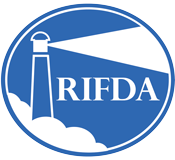What purpose does a funeral serve?
It is the customary way to recognize death and its finality. Funerals are recognized rituals for the living to show respect for the dead and to help survivors begin the grief process. Funerals in one form or another have been conducted to honor the dead since around 35,000 BC.
What do funeral directors do?
Funeral directors are caregivers and administrators. They make the arrangements for transportation of the body, complete all necessary paperwork, and implement the choices made by the family regarding the funeral and final disposition of the body.
Funeral directors are listeners, advisors and supporters. They have experience assisting the bereaved in coping with death. Funeral directors are trained to answer questions about grief, recognize when a person is having difficulty coping, and recommend sources of professional help. Funeral directors also link survivors with support groups at the funeral home or in the community.
Why have a public viewing?
Viewing is a part of many cultural and ethnic traditions. Many grief specialists believe that viewing aids the grief process by helping the bereaved recognize the reality of death. Viewing is encouraged for children, as long as the process is explained and the activity is voluntary.
What is the purpose of embalming?
Embalming sanitizes and preserves the body, retards the decomposition process and enhances the appearance of a body disfigured by traumatic death or illness. Embalming makes it possible to lengthen the time between death and the final disposition, thus allowing family members time to arrange and participate in the type of service most comforting to them.
Does a dead body have to be embalmed, according to law?
No.
Isn’t burial space becoming scarce?
While it is true some metropolitan areas have limited available cemetery space, in most areas of the country, there is enough space set aside for the next 50 years without creating new cemeteries. In addition, land available for new cemeteries is more than adequate, especially with the increase in entombment and multi-level grave burial.
Is cremation a substitute for a funeral?
No. Cremation is an alternative to earth burial or entombment for the body’s final disposition and often follows a traditional funeral service. In fact, according to FTC figures for 1987, direct cremation occurred in only 3% of deaths.
Is cremation as a means of disposition increasing?
Yes, but not dramatically. Below are the New York State cremation statistics for 1996 and 2000:
| Year | Cremations | % to deaths | ||
| 1996 | 26,400 | 16.12 | ||
| 2000 | 31,998 | 20.32 |
Estimated percentage for 2010 and 2025:
| Year | % to deaths |
| 2010 | 33.77 |
| 2025 | 43.53 |
| (Source: Cremation Association of North America) |
What determines the cost of a funeral?
The family of the deceased does. The cost of a funeral will depend on how elaborate or how simple a ceremony is desired. Funeral directors offer a wide variety of services to choose from.
Remember, a funeral home is a 24-hour, labor intensive business with extensive facilities (viewing rooms, chapels, limousines, hearses, etc.) and these expenses must be factored into the cost of a funeral. Moreover, the cost of a funeral includes not only merchandise, like caskets, but the services of a funeral director in making arrangements, filing appropriate forms, dealing with doctors, ministers, florists, newspapers, etc. and seeing to all the necessary details.
Who pays for funerals for the indigent?
Other than the family, there are veteran, union, and other organizational benefits to pay for funerals, including, in certain instances, a lump sum death payment from Social Security. In most states, some form of public aid allowances are available from the state.
Most funeral directors are aware of the various benefits and know how to obtain them for the indigent. However, funeral directors often absorb costs above and beyond what is provided by agencies to insure a respectable burial for the deceased.
